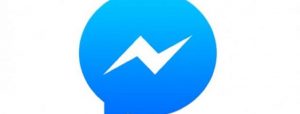As many as 7 million people might cut the cord once HBO launches its new streaming service later this year. At least that’s how a market research firm read the numbers from its recent online survey.
Such a mass exodus, if it were to occur, would be a huge blow to pay TV companies like Comcast, Time Warner Cable and DirecTV. About 100 million households in the U.S. subscribe to TV.
But don’t set your timers to mass cable exodus just yet. The report from Dallas-based market researcher Parks Associates is based on an online survey of 10,000 people in U.S. homes with broadband access from late last year. And even Parks Associates suggests this drastic scenario might not actually happen.
“Just because somebody says on a survey that they’re going to do something doesn’t mean they actually are,” Glenn Hower, a research analyst at Parks Associates, told The Huffington Post. “We have some doubts that 7 million households are going to say, ‘Well, I can get HBO so [I’m going to cut my cable] service.”‘
For one, the network hasn’t released many details about HBO GO — including the critical detail of how much it will cost. For the survey, Parks Associates put the price at $14.99 per month, roughly the amount you pay if you add HBO onto your current TV package.
Also, most people probably aren’t subscribing to a full TV package of hundreds of channels just to get HBO. They’re watching other programming like sports and on-demand programming they’d lose if they cut the cord.
And, of course, the company that you pay for TV is likely the same company that you pay for Internet access. Many people may find it’s a greater value to subscribe to TV and Internet together — the “double play” — than to pay separately for Internet and a handful of streaming services.
“It’s easy to say that you’re going to cancel your TV service, but then when consumers go and realize just how much they’ll be losing, I imagine they would balk at the loss of content,” Hower said.
ReCode’s Peter Kafka put it a bit more bluntly. “It’s also possible that people who participate in Parks surveys have literally no idea what they’re talking about, are drunk, or believe they’re in an alternate universe,” he wrote.
So 7 million cord cutters inspired by HBO alone might be a little high. But pay TV companies should still be concerned, Hower said. The cable bundle does appear to be loosening, and this year will be a banner year for streaming video. Online services from Netflix and Amazon continue to improve their programming and win awards. Netflix just reported another increase in subscribers, bringing its U.S. membership to over 37 million. Dish, the satellite TV company, recently announced that it will launch a $20-per-month online TV service with a slimmed-down package of channels that includes ESPN. And Showtime is expected to launch its own standalone streaming service later this year.
Although subscriptions to pay TV aren’t in free fall, an increasing number of people, especially millennials, are cutting the cord, choosing to get their entertainment from a mix of online services like Netflix, Amazon, Hulu and iTunes.
The number of households in the U.S. that don’t subscribe to TV but pay for broadband Internet grew to more than 10.5 million in the third quarter of last year, up 16 percent over the same period in 2012, according to research firm SNL Kagan.
HBO, which declined to comment on the Parks Associates survey, has to find a tricky balance with its new service. The network makes a lot of money from people paying their cable company extra for HBO’s content. In 2013, it pulled in $1.68 billion in profit on $4.9 billion in revenue globally. The network also depends on the Comcasts and Time Warner Cables to market its channels to customers.
When HBO announced the new service at an investor conference last fall, executives emphasized that it was going after the growing number of broadband-only homes, not existing pay TV subscribers, and that the standalone service shouldn’t threaten TV subscriptions.
Read more: Standalone HBO Could Inspire Millions To Ditch Cable, Survey Says







